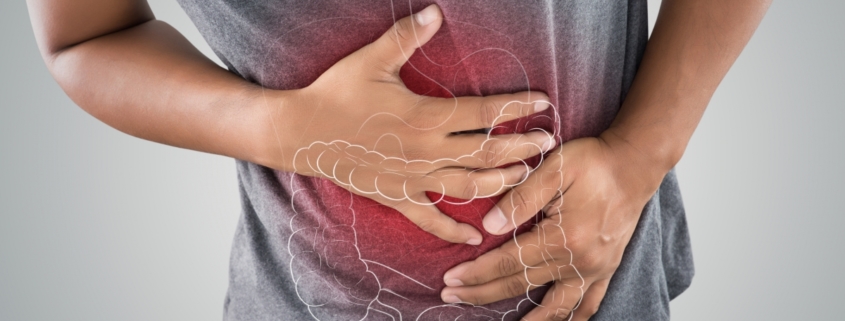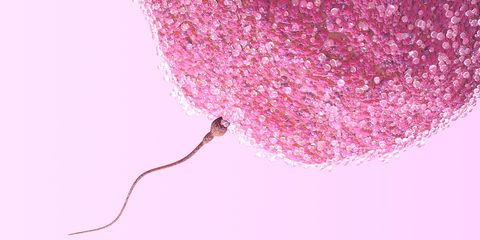In this blog,
I would like to address an increasing health concern in today’s modern world,
infertility. I would like to share some of the latest research and outline some
common questions my patients have. If you and your partner are having
difficulty conceiving, know that there is help and being informed of the many
options is a great start.
What is
infertility?
According to the World Health Organization, infertility
is a disease of the reproductive system defined by a failure to achieve a
clinical pregnancy after 12 months or more of regular unprotected sexual
intercourse (Zegers-Hochschild et al., 2009).
Is
infertility a common problem?
Infertility is a
major problem in modern society and recurs in as much as 20–30% of the fertile
female population. The World Health Organization (WHO) reports up to 80 million
women world-wide having been affected by this disease to date, with a
prevalence of ∼50% of all women in developing countries. (Sylvestris et.
Al, 2019)
Is
infertility just a woman’s problem?
Infertility
is not just a woman’s problem, although most women are the one’s seeking
medical care initially. Male
infertility accounts for about 40 – 50% of infertility in a couple. Male
infertility is a situation where a man is unable to get a fertile woman
pregnant after at least one year of consistent unprotected sex. (Onwuli et al,
2014)
What
causes infertility in men?
Male infertility is
commonly marked as deficiencies in the semen and semen quality. In most
fertility tests, the volume, total sperm count and sperm motility are often
measured. Infertility affects about 8-12% of the world’s population, and in
half of the cases, men are either the single cause or contribute to the couples
infertility. (Onwuli et al. 2014)
What
increases a man’s risk of infertility?
Some factors that may
reduce the quality of sperm cells include the consumption of heavy alcohol, use
of certain drugs, cigarette smoking, hormonal imbalance, treatment with certain
chemotherapy for cancer, advanced age and environmental toxicants, such as
pesticides and heavy metals, which may act as endocrine disruptors. (Onwuli et
al. 2014)
What
causes infertility in women?
The most
common causes for female infertility are smoking, alcohol, irregular ovulation,
PCOS, following a high glycemic diet with low nutrients, excessive caffeine,
endometriosis, a history of pelvic infection, advanced maternal age, stress and
toxicity.
I would
say that unabated stress results in high adrenaline and cortisol levels. This
leads to other imbalances in the body- hormones and nutrients alike.
Drugs
such as marijuana and cocaine, smoking tobacco and alcohol intake have been
shown to have adverse effects on all aspects of reproduction, from conception
to labour to delivery. Smoking causes significant increases in miscarriage and
prematurity. Women who are smokers are less successful with fertility
treatments of all kinds than are non-smokers. (Silvestris et al, 2019)
Exposure
to environmental pollutants is another large risk factor. The Occupational
Safety and Health Administration (OSHA) postulated that long-lasting exposure
to chemical agents as organic solvents, heavy metals, aromatic amines,
pesticides and vegetal toxins is related to reduced fertility and recurrent
miscarriages. (Silvestris et al, 2019)
How will a
naturopathic doctor find out if a woman and her partner have fertility
problems?
Most
people who I see and treat have already been given a diagnosis of infertility
and usually come in with a battery of lab tests run through their fertility
doctors. Nevertheless, it is important that a thorough medical history be
attained for both male and female patients. Questions pertaining to current
lifestyle attitudes including sleep, diet, stress, sexual history, menstrual
history etc. needs to be understood. Additional ways I assess their health may
be through testing of hormone levels through blood or saliva, including estrogen,
progesterone, LH, FSH and thyroid hormones.
Commonly,
I see many patients who are unsure of the reason they cannot conceive as
everything seems to check out fine with medical doctors and so are given a
diagnosis of “infertility of unknown cause”. This provides alternative practitioners
a great opportunity to address other areas of one’s health that may have been
missed or dismissed all together as a barrier to fertility.
How do
Naturopathic doctors treat infertility?
The “conventional”
management of infertility generally focuses on the body as a hormonal machine
and in large part ignores the psychological, emotional and nutritional aspects
of one’s health. Here is where alternative therapies are finding their place
and for good reason. When the focus in primarily on the pharmacological
treatments and technologies currently available for fertility without much
concern for the hearts and spirits of those patients, the results can leave a
lot of people feeling devastated. I believe that it is extremely important to
treat the “whole person” and listed below are some ways I do that.
Counseling: I can’t emphasize enough
the importance of really hearing and understanding my patients. This can be a
very difficult and stressful time in their lives. Providing emotional support
and a place where they can express their fears, hopes and dreams is important. Several
studies show that when emotional stress is resolved, pregnancy rates go up.
Hormonal Balance: When
assessing for hormonal balance there are many ways to do so either through
urine, saliva or blood. In all my years of clinical practice, I have come to
trust that when you combine the healthy merits of a balanced diet, stress
management and moderate exercise, the body begins to restore hormonal balance.
Nutritional
Support: Most infertile patients that I have helped were very
minerally depleted and so beginning a prenatal for women with adequate folic
acid is important. For men, a multivitamin in addition to vitamin C, vitamin E,
selenium and zinc in the right doses may help in sperm production.
Omega
3 Fatty Acids: More research is shedding light on the
positive effects of omega 3 fatty acids in both female and male infertility. The
effects of DHA and EPA on sperm parameters including total sperm concentration,
sperm motility, seminal plasma DHA and sperm DHA have been evaluated in
infertile men. Results of the meta-analysis showed that supplementing infertile
men with omega 3 fatty acids improved sperm motility and DHA in seminal plasma.
(Hosseini
et.al, 2019)In a study byNehra et. al where they evaluated
women of advanced maternal age, a diet rich in omega 3 fatty acids showed an
effective avenue for delaying ovarian aging and improving oocyte quality.Highlighting the importance of omega 3
supplementation with my patients is essential, not only in conception but also
throughout the pregnancy and beyond as it helps with neurological and brain
development.
Detoxification
and elimination of toxic exposure: In my office my patients
usually order a hair mineral and heavy metal test which is key in highlighting
toxicity, and as the research states, this is very important to address as it
can be a barrier to fertility. Proper detoxification of heavy metals must occur
and retesting to show complete elimination from the body prior to conceiving is
important.
Acupuncture: Acupuncture can also help a
couple conceive depending on the reason for infertility.I have had some success in treating infertility with acupuncture
treatments. Acupuncture can help a patient to lessen stress which can aid in
hormonal balance and it can also improve uterine blood flow in the female.
Dietary
suggestions: It is important to understand what type of
diet my patient is following. Removing refined sugars and eating a low glycemic
diet is best. In addition, following an anti-inflammatory diet rich in fruits
and vegetables is also effective. An IgG
Food Sensitivity Test is usually ordered here if I suspect food sensitivities
and impaired digestion.
Exercise: For
some couples, weight loss can do great things for the hormonal system. If you
or your partner are overweight, counseling around weight loss and exercise is
important and can make the difference, especially in women who have PCOS and
other ovulatory disorders.
Keep in mind that each patient and couple will differ in
their reasons for infertility. This is not a “one size fits all”. Booking an
appointment to better understand your particular health reasons is always best.
Thank you for reading. Reach out for further help.
Much love,
Dr. Jen Cisternino, Naturopath
416-301-3477






